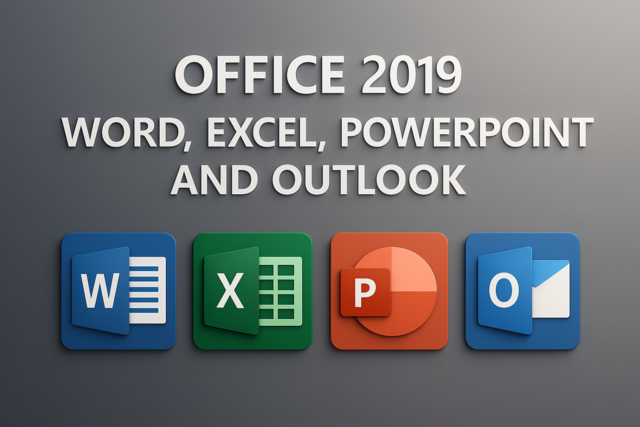Accounting is the most important part of any successful business. It records all profits, losses, credits, and debts. It tells you the state of the business in numbers, not words. It provides the most vital information you need to understand how your business grows, makes money, where the profit of a business goes, and what your cash flow is. In short, if you do not understand the basic principles of accounting, you cannot run a business, nor can you even hope to help a business grow and profit.
Today in America, we face a new economic era where, day by day, labor-driven jobs disappear, being replaced by an ever-increasing number of better-paying, general management jobs. If you work for a company and are currently managing any aspect of the company, or if you aspire to move up to management, then you need to understand what accounting is. Moreover, if you are an entrepreneur, or you ever plan to start your own business, you need to understand, at the very least, the basic principles of accounting.
Many times, people hired into high-ranking positions in corporate America have no concept of basic accounting. In fact, at the mere mention of the word "accounting" they become withdrawn and quiet. Yet these same managers are somehow going to increase sales and overall profit of a company.
Learning accounting is like any new skill. There is a learning curve, and the skill needs to be practiced, or used in this case, in order for it to be effective. If you have access to your company's financial statements, please take the time to apply our examples to your company's financials.
Those of us who are born as right-brain thinkers tend to be better at creative, imaginative, passionate activities. Then there are those of us who are left-brain thinkers, naturally adept at working with numbers, applying logical reasoning, and analytically solving problems.
Regardless of which category you fall into, the truth is that anyone can learn the basic principles of accounting and develop a knack for managing the financial aspects of a business. The upside of learning basic accounting principles is that, regardless of whether it is a large Fortune 500 company or a small entrepreneurial start-up, the same fundamental rules apply when working with the bottom line.
"Accounting is a system of recording, analyzing and verifying an organization's financial history."
-- Insurance Information Institute Web site.
Widely referred to as the "language of business," accounting is formally defined as the practice of objectively measuring and reporting on a summary of an individual or business's financial transactions.
In a more simplified description, accounting is the process of producing timely, accurate, and understandable information about a company's financial status.
Accounting: Stereotype
While practicing an honorable profession, accountants have long gotten a bad reputation as being somewhat humorless "bean counters" (think of the character Leo Bloom in Mel Brooks' Broadway hit play The Producers). Perhaps this stoic image is not so bad when you consider that accountants simply pride themselves on being sticklers about getting accurate numbers, to the point of making it as close to an exact science as possible.
Accounting: Big Picture and Stats
While number-crunching and a great attention to detail may come easily to the more than 2 million individuals trained as accountants, bookkeepers, and auditors, someone who does not have the same level of experience may be less than comfortable tackling the financial side of a business's operations.
To those lacking specialized know-how, even the most general accounting procedures can seem overwhelming. When broken down into individual parts, however, the process becomes more manageable and decidedly simpler to understand.
At present, there are close to a million accountants in the United States. Of this vast group, the majority tends to have a keen ability for swiftly analyzing, comparing, and interpreting facts and figures. The prospective accountant also needs to have the skills necessary to convey findings to clients and managers, and must be vigilant about staying up to date on the latest policies pertaining to financial accounting procedures.
Today in the world of accounting, you will find a new focus on ethics and on the use of computer technology. Historically, accounting began as a pen-to-paper practice in which all data was kept within a centralized ledger. In order to remain current, new information, or entries, had to be added on a consistent basis.
While many of the original accounting practices are still in use today, they no longer entail entries being made by hand but instead rely upon data logged into well-appointed computer programs.
In addition to their traditional repertoire of bookkeeping and compliance oversight, accountants moving into the new millennium have developed a future-forward perspective, equally concerned with charting numerical data and with overall business strategy and financial projections.
The emergence of technology is not the only area of accounting that has been overhauled. Accountants have steadily focused their efforts on adding advanced certifications. Thus, as a whole, they are continually becoming more competitive and knowledgeable of changes that affect their industry and their clients' industries as well.
Accounting: Summarized Version
As a whole, an accountant's primary responsibility is to account for the earnings and funds for a business or individual. Accounting uses various bases of measurement, mainly the cash basis, the accrual basis (or historical cost), and variations of these.
HISTORY OF ACCOUNTING
What place in history does accounting have, you ask? Probably a much more prominent position than you may have originally thought. Throughout history, accountants have made sizable contributions to the development of cities, trade, and industry, not to mention the formulation of the practice by which numbers came to represent wealth.
It is no exaggeration to say that accountants were highly involved in the notation and development of formalized systems for recording interactions that involved money and banking. Furthermore, accountants invented the double-entry bookkeeping system that helped keep the Italian Renaissance afloat, rescued many Industrial Revolution inventors and entrepreneurs from the brinks of bankruptcy, and helped propel Western capitalism by instilling confidence in capital markets.
Accounting: Historically Speaking
When discussing the history of accounting as a profession within the U.S., one seminal event tends to be repeatedly mentioned. This most memorable occurrence was the invention and widespread employment of the bookkeeping method known as the "double-entry process."
In 1494, the first book on mathematics by Luca Pacioli, considered to be the father of accounting, was published. Section 9 of the book is a thesis on the subject of double-entry bookkeeping.
First Accounting System: Identifiable Features
The first public disclosure of bookkeeping relayed the practices of Venetian merchants who used the system to keep a rein on the movement of their inventory. In its original documentation, the bookkeeping method was said to be distinguishable by the following features:
1. To maintain a diligent business, one must have a cash supply, a good accountant, and a sharp bookkeeper to arrange all of the business in terms of debit and credit.
2. Though the opening inventory was addressed, the closing inventory was not mentioned.
3. The account book system comprised three account books: a daybook, or formal account book; the journal; and the ledger.
4. Without fail, all pertinent happenings related to a transaction were required to be entered into the daybook.
5. Debit and credit were described as "per" and "A" in the journal, and "die dare" and "die havere" in the ledger.
To explain why the double-entry bookkeeping system was developed in 15th century Italy rather than ancient Greece or Rome, the pre-eminent accounting scholar A. C. Littleton described seven probable contributing factors:
Private property--power to change ownership for bookkeeping focuses on the recording of facts pertaining to property and property rights.
Capital--allocation of wealth, for otherwise commerce would be unable to flourish and credit would not need to exist.
Commerce--widespread interchange of goods for trading on a purely localized level would limit the volume of quantities involved, hence, diminishing the need to create an organized business model to replace a fledgling system of record-keeping.
Credit--the present use of future resources, for there would have been little reason to record transactions at the time of occurrence.
Writing--means for maintaining a permanent record within a universal language.
Money--considered the "common denominator" for exchanges, without it there is no need for bookkeeping, which abbreviates transactions to a set of monetary values for recording and tracking purposes.
Arithmetic--means for tabulating the monetary component of the transaction.
The majority of these conditions and factors did not appear simultaneously until the Middle Ages, when need demanded the development of the double-entry system.
While writing is a skill that is as old as civilization itself, arithmetic, meaning the systematic manipulation of number symbols, was not a tool utilized by the ancients. Just the opposite is true. Long after the introduction of Arabic numerals, Roman numerals continued to be used to record financial transactions.
Interestingly, today we experience problems with record-keeping, control, verification, and financial dealings that are similar to those of the ancients.
Particularly in the area of taxes, governments have a long history of needing to maintain diligent records of receipts and disbursements. The absence of a single, cohesive system to expedite such activities as record-keeping, data collection, and confirmation of numerical figures made the ancient accountant's job incredibly challenging.
Furthermore, in societies where nearly all citizens were illiterate, writing materials were expensive, numeration was difficult, and money systems were inconsistent. Transactions needed to be extremely value-laden to justify the employment of an accounting record.
Accounting: Present Day
According to the Web site www.CPAFinder.com, accounting is regarded today as the systematic development and analysis of information pertaining to the economic affairs of an organization. In addition, one of the most important purposes of accounting is the ability to communicate relevant information between and among producers and end-users of such information.
The purpose of such integral information includes:
- Aiding operational managers in terms of planning and control.
- Helping owners, regulatory bodies, and legislative entities appraise the organization's performance and, based upon the findings, make decisions concerning the future.
- Determining whether owners, lenders, suppliers, employees, and/or others spend more or less money on the organization and, in the case of governmental bodies, such critical information is used to determine the amount of tax the organization is obligated to pay.
- From the consumer perspective, helping to establish a price when contracts call for cost-based payments.
Purpose of Accounting: Summary
In a nutshell, accounting, as a whole, accounts for such activities as maintenance of files of data, analysis and interpretation of data, and preparation of multiple types of reports.
In the general sense, the accounting documentation process encompasses the accountant's observation of how a specific organization functions, keeps records, and generates reports.
To this very day, it is accountants who continue to fuel the information revolution, which in turn helps to transform the world's economy.
The current world of business and accounting is wholly integrated with the computer and the Information Revolution, which, though ongoing for more than half a century, has literally exploded as we enter into the millennium.
Computers possess the intelligence and systematic capability to proficiently and efficiently expedite numbers pertaining to accounts receivable and payable, inventories, and payrolls.
One of the first major computers to lead the way was IBM's Big Blue mainframe model. As technology raced to meet newer and higher expectations, the industry developed desktop and personal computers and, ultimately, laptop computers based upon users' need or desire for increased mobility, portability, and constant accessibility.
Making the demand for technology solutions even more urgent, globally based capital markets operate 24 hours a day and are wholly dependent upon accounting data. With continual advancements being made within the world of technology, accountants are increasingly challenged to provide continuous streams of information.
Interlinked in many ways, advancements in technology correlate to progress in accounting.






























